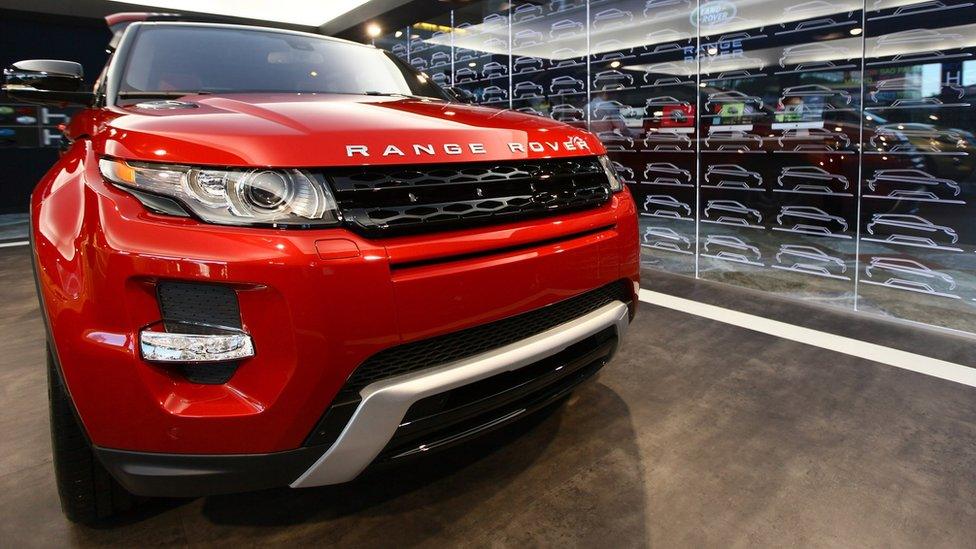JLR cuts Land Rover production amid diesel uncertainty
- Published

The Range Rover Evoque has been made at Halewood since 2011
Jaguar Land Rover will cut production of some vehicles amid uncertainty over Brexit and changes to taxes on diesel cars.
The company will temporarily scale back output of the Discovery Sport and Range Rover Evoque models later this year.
Last week, JLR said its global sales hit a record in 2017, but that the UK market was "tough".
Vehicle makers have blamed Brexit confusion and a hike in diesel taxation for a general fall in UK car sales.
The two Land Rover models are made at the company's Halewood plant on Merseyside. Output will be reduced in the second quarter of 2018.
JLR said the car industry continued to face a "range of challenges" that were hitting consumer confidence.
Diesel cars: Your questions answered
What's gone wrong in the UK car market?
"Ongoing uncertainty surrounding Brexit is being felt by customers at home - with demand for new cars down 5.7% in 2017 - and in Europe where collectively, we sell approximately 45% of total UK production.
"Add to this, concern around the future of petrol and diesel engines, and general global economic and political uncertainty and it's clear to see why industry is seeing an impact on car sales."
It said it regularly reviewed production schedules to ensure market demand was "balanced".
The Range Rover Evoque has been made at Halewood since 2011 and Discovery Sport since 2014.
"Volumes have remained at peak levels since that time, allowing us to maintain what was initially a three-shift pattern. These changes to operating patterns are temporary and sensible business practice," JLR added.
Figures from the Society of Motor Manufacturers and Traders for November showed the number of cars built in the UK fell 4.6%, driven lower by a fall in domestic demand, while exports grew.
SMMT chief executive Mike Hawes said at the time: "Brexit uncertainty, coupled with confusion over diesel taxation and air quality plans, continues to impact domestic demand for new cars and, with it, production output."
- Published9 January 2018
- Published8 January 2018
- Published5 January 2018
- Published21 December 2017